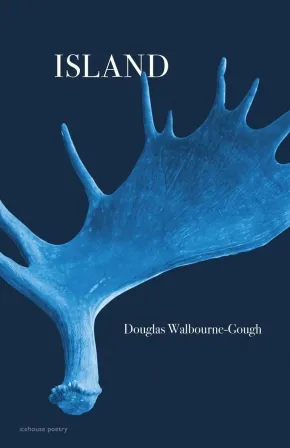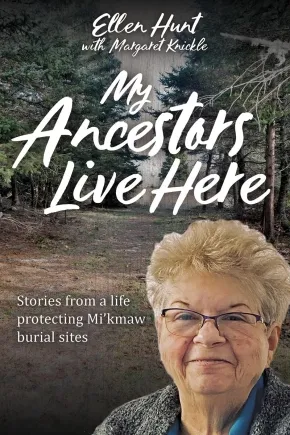
Qalipu First Nation
1
-
4
of
4 Results;
Sort By
Island
$22.00
Format:
Paperback
Text Content Territories:
Indigenous Canadian; First Nations; Mi'kmaq (Mi'gmaq);
Reading Level: N/A
ISBN / Barcode: 9781773103396
Synopsis:
Synopsis:
“Canada rejected our applications for enrolment in the Qalipu First Nation. Initially, I was relieved by the rejection. I’d watched my hometown divide itself — are you Mi′kmaq or settler? Mi′kmaq or not Mi′kmaq enough?”
Centred around the Newfoundland Mi'kmaq experience in the wake of the controversial Qalipu First Nation enrolment process, Island wades through the fracture and mistrust that continues to linger in many communities. In this new collection, Douglas Walbourne-Gough expands upon issues of identity and history that he introduced in Crow Gulch, offering a deeply personal and equally beautiful exploration of Mi'kmaw and Newfoundland identity.
Walbourne-Gough’s narrative poems trace the formation of identity, not through status documentation, but through its deeper roots in childhood memories, family, spirituality, and dreams. Throughout this collection, he approaches life in fragments — snuggling into his nan’s sealskin snowsuit, learning Mi'kmaq from an app, or the myriad of complex emotions that come with receiving a status card — and watches them transform into pieces of an everlasting puzzle. Island reckons with an often-ignored, yet persistent, effect of colonialism — fractured identities.
Additional Information
80 pages | 5.50" x 8.50" | Paperback
My Ancestors Live Here: Stories from a Life Protecting Mi'kmaw Burial Sites
$24.95
Format:
Paperback
Text Content Territories:
Indigenous Canadian; First Nations; Mi'kmaq (Mi'gmaq); Qalipu First Nation;
Reading Level: N/A
ISBN / Barcode: 9781459507494
Synopsis:
Synopsis:
For over twenty years, Mi’kmaw Elder Ellen Hunt has been identifying, researching and fighting to protect Mi’kmaw burial sites in Nova Scotia which have long been forgotten, neglected and destroyed.
Moved by a powerful call from her ancestors, Ellen Hunt’s work has taken her to burial sites ranging from Nova Scotia’s South Shore to Cape Breton. This memoir chronicles her childhood growing up in a Mi’kmaw community in Newfoundland and her activist work through to the present day. Ellen also shares the many challenges she has faced – from indifferent politicians to antagonistic locals.
This memoir incorporates stories about the long Mi’kmaw history of the sites Ellen has identified and the teachings of her Mi’kmaw ancestors which have shaped her life and her work.
Additional Information
6.02" x 9.01" | 20+ colour and black and white images | Paperback
Suliewey: The Sequel to My Indian
$16.95
Format:
Paperback
Text Content Territories:
Indigenous Canadian; First Nations; Beothuk; Mi'kmaq;
ISBN / Barcode: 9781550819885
Synopsis:
Synopsis:
Suliewey: The Sequel to My Indian continues the story of Mi’kmaw guide Sylvester Joe, whose traditional name is Suliewey, as he seeks out the last remaining Beothuk community.
In My Indian, Sylvester was hired by William Cormack in 1822 to guide him across Newfoundland in search of Beothuk encampments. In fact, he followed the advice of his Elders and guided Cormack away from the Beothuk.
In this sequel, having parted ways with Cormack at St. George’s Bay, Sylvester decides to go out on his own, in search of the winter camp of the last of the remaining Beothuk.
Written as fiction, by two Mi’kmaq authors, Suliewey: The Sequel to My Indian supports Mi’kmaq oral history of friendly relationships with the Beothuk.
The novel reclaims the settler narrative that the Beothuk and the Mi’kmaq of Newfoundland were enemies and represents an existing kinship between the Mi’kmaq and the Beothuk.
Rich in oral history, the descriptions of traditional ceremonies and sacred medicines, the use of Mi’kmaw language, and the teachings of two-spirit place readers on the land and embed them in the strong relationships described throughout the book.
Educator & Series Information
Recommended for ages 12 to 14.
This is the second book in the My Indian series.
Additional Information
232 pages | 5.25" x 8.00" | b&w illustrations | Paperback
232 pages | 5.25" x 8.00" | b&w illustrations | Paperback
My Indian
$16.95
Format:
Paperback
Text Content Territories:
Indigenous Canadian; First Nations; Beothuk; Mi'kmaq;
ISBN / Barcode: 9781550818789
Synopsis:
Synopsis:
In 1822, William Epps Cormack sought the expertise of a guide who could lead him across Newfoundland in search of the last remaining Beothuk camps on the island. In his journals, Cormack refers to his guide only as “My Indian.”
Now, almost two hundred years later, Mi’sel Joe and Sheila O’Neill reclaim the story of Sylvester Joe, the Mi’kmaq guide engaged by Cormack. In a remarkable feat of historical fiction, My Indian follows Sylvester Joe from his birth (in what is now known as Miawpukek First Nation) and early life in his community to his journey across the island with Cormack. But will Sylvester Joe lead Cormack to the Beothuk, or will he protect the Beothuk and lead his colonial explorer away?
In rewriting the narrative of Cormack’s journey from the perspective of his Mi’kmaq guide, My Indian reclaims Sylvester Joe’s identity.
Educator & Series Information
Recommended for ages 12 to 14.
Recommended for ages 12 to 14.
This is the first book in the My Indian series.
Additional Information
176 pages | 5.25" x 8.00" | b&w illustrations
176 pages | 5.25" x 8.00" | b&w illustrations
Sort By










